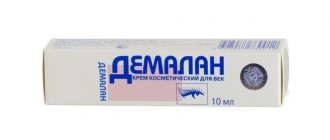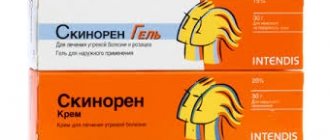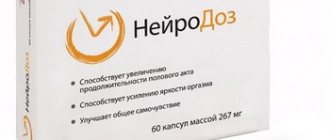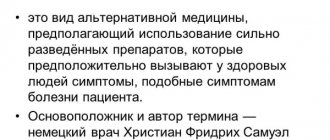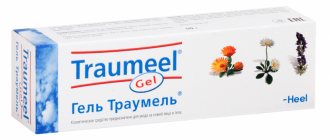In the treatment of diseases of the urinary tract, products containing extracts of medicinal plants are often used. Among these drugs are Renalis and Canephron.
In the treatment of diseases of the urinary tract, products containing extracts of medicinal plants - Renalis and Canephron - are often used.
Release form and composition
The dietary supplement Renalis is produced only in the form of white capsules, which are packaged in cellular blisters of 15 pcs. The package contains 2 blisters and instructions for use.
The therapeutic effect of the dietary supplement is ensured by the following composition:
| Name of components | Description of their action |
| Composition of capsule contents | |
| Lingonberry leaf extract | Helps reduce inflammation, accelerate the elimination of toxins, strengthens the immune system, and also has bactericidal and diuretic properties. |
| Rosemary extract | Reduces signs of an inflammatory reaction, has antiseptic properties, strengthens the immune system, and also restores the condition of blood vessels and prevents the development of cancer cells. |
| Cranberry extract | The component has antibacterial, anti-inflammatory and immunostrengthening properties, additionally prevents the development of cancer cells, prevents the formation of kidney stones and has antipyretic properties. |
| Centaury extract | It is an antiseptic, prevents the development of inflammation, reduces pain and eliminates spasms. |
| Lovage Root Extract | The component has diuretic, immunostrengthening, anti-inflammatory properties. Also helps eliminate pain and spasms. |
| Microcrystalline cellulose | Stabilizer. Prevents contents from clumping. |
| Calcium stearate | The substance is also a stabilizer. |
| Silica | The component absorbs moisture, preventing contents from caking. |
| Composition of the capsule shell | |
| Gelatin | Gives the capsule the desired texture and protects the contents of the capsule from external influences. |
| Titanium dioxide | Gives the capsule shell the required white color. |
The listed composition of the capsule contains approximately 1.5 mg of arbutin (has an antiseptic effect on the tissues of the urinary system) and 2 mg of flavonoids (activate the process of tissue regeneration and fight inflammation).
Pharmacodynamics and pharmacokinetics
Renalis, the indications for use of which are described in the instructions, is a multicomponent drug and has the following effects on organs and tissues:
- activates the removal of excess fluid from the body and normalizes kidney activity;
- has a detrimental effect on pathogenic microflora mainly in the organs of the urinary system;
- fights the process of inflammation;
- helps eliminate heat;
- has a strengthening effect on the immune system;
- prevents the formation of sand and kidney stones, and also promotes their removal if present;
- helps eliminate muscle spasms;
- has a tonic effect on the body;
- activates tissue regeneration, accelerating the process of restoration of affected organs of the urinary system;
- normalizes the frequency of urination;
- has a choleretic effect;
- accelerates the restoration of liver tissue;
- Helps relieve tension and nervousness;
- thins mucus and facilitates its removal from the bronchi;
- helps strengthen blood vessels and normalize blood circulation;
- prevents the development of malignant cells;
- normalizes cerebral circulation, ultimately improving memory and performance;
- accelerates the removal of toxins from the body;
- reduces the likelihood of developing an allergic reaction.
Additionally, the dietary supplement enhances the therapeutic properties of antibiotics, resulting in the need to use a medication with a lower dosage, which ultimately reduces the harmful effects of antibiotics on the body.
The time for absorption of dietary supplement components into the blood and their removal from the body has not been established due to the naturalness of the composition.
Comparison of Renalis and Canephron
The preparations are similar in their composition: both contain medicinal plants. But Renalis is a dietary supplement, and Canephron is a medicine. Both drugs are indicated for pathologies of the urinary system.
Renalis is not recommended for pregnant and lactating women, and Canephron is approved for use in these conditions if the doctor deems it necessary to prescribe them as a therapeutic agent.
The drugs also differ in their use in treating children. The instructions for Renalis do not indicate any restrictions for this category of patients, and Canephron is not recommended for use for up to 1 year.
The drugs are also similar in that they are well tolerated by patients. They have the same side effect - the appearance of symptoms of an allergic reaction.
Indications for use
The dietary supplement Renalis, due to its wide range of effects on the body, is used to eliminate the following pathologies:
- inflammatory processes in the bladder, including those of an infectious nature (cystitis, urethritis);
- swelling of the limbs;
- impairment of the condition and activity of the kidneys;
- removing kidney stones and preventing their formation;
- gout. The disease is expressed by joint pain due to the increased concentration of uric acid in the body;
- in the complex treatment of pneumonia and bronchitis;
- violation of the condition of blood vessels and deterioration of blood circulation;
- deterioration of kidney function in mild to moderate form;
- the presence of infectious pathologies in the urinary system;
- heat caused by pathogenic microflora in the urinary system;
- pain in the urinary system caused by spasms;
- frequent urination and urinary incontinence;
- violation of the condition of liver tissue;
- to activate the removal of bile from the gallbladder;
- to accelerate the removal of toxins from the body after severe forms of infectious diseases;
- in complex treatment with antibiotics, to reduce the dosage of the medication;
- to prevent the development of cancer in the urinary system, if there is a predisposition to this pathology.
Additionally, dietary supplements can be used as an immune-strengthening agent during the cold season.
Contraindications
Renalis (indications for use as well as contraindications, it is recommended to further clarify with your doctor) is not a drug.
Despite its natural composition, dietary supplements cannot be used in the following cases:
- presence of allergies or hypersensitivity to dietary supplement components;
- period of bearing a child. The safety of use of the product has not been proven due to the lack of clinical trials. Additionally, it is possible that the composition of the drug may cause a miscarriage;
- breast-feeding. The drug passes into breast milk, as a result, the dietary supplement can disrupt the development of organs and systems of the newborn;
- regular pressure surges;
- pathologies of the digestive tract in severe form.
For unexplained pathologies of the urinary system, dietary supplements are also not used.
Important. If you have a bleeding disorder, Renalis should be used with caution.
Which is better - Renalis or Canephron
According to many doctors, there is little benefit from Renalis. The diuretic effect of the drug is insignificant, and there is practically no antiseptic effect. As a food supplement, it is useful because it replenishes the body with flavonoids. It is rarely used in medical practice.
But despite this, it is up to the doctor to decide whether to prescribe Renalis or Canephron. Only the doctor, after examining the patient, can decide on the choice of therapeutic course.
Instructions for use, dosage
Renalis should be used only after consultation with a specialist, since the doctor must check not only the presence of contraindications, but also indicate the exact course of use of the capsules according to the existing indications and the severity of the pathology.
Below is the classic dosage of dietary supplements (provided there are no restrictions on use) prescribed by a doctor:
| Type of pathology | Single dosage | Redness per day | Course duration and notes |
| Cystitis | 1 capsule | 2-3 times | The drug must be used until symptoms disappear and continued for about 5 days after recovery. The total duration of treatment should be no more than 30 days. Important. For severe pathologies, complex treatment is required, which is selected by a doctor. |
| Edema | 1 capsule | 2 times | It is recommended to take the dietary supplement in the morning and evening for 2 weeks. If there is no effect during the first 5 days of use, consultation with a specialist and selection of additional drugs is necessary. |
| Kidney pathologies | 1 capsule | 2-3 times | Depending on the type of disease and its severity, complex treatment may be required. The total duration of use of the capsules is 30 days. Repeating the course is allowed no earlier than after a month. |
| Stones in the kidneys | 1 capsule | 3 times | The duration of use of the capsules is determined individually by the nephrologist. Important. Capsules can be used only after a preliminary examination to determine the number of stones and their sizes. |
| Gout | 1 capsule | 2-3 times | The duration of the course is 1 month. Additionally, you must follow a therapeutic diet prescribed by your doctor. |
| To thin mucus | 1 capsule | 2 times | You should take dietary supplements until complete recovery, but no more than 30 days. Treatment is complex and determined by the treating specialist. |
| Urinary incontinence | 1 capsule | 1-2 times | It takes 20-30 days to use Renalis. In this case, it is necessary to control the dynamics of therapy by the attending physician. |
| Liver pathologies | 1 capsule | 2 times | When treating the liver, dietary supplements can only be used with the permission of a doctor. It should be borne in mind that therapy must be comprehensive. The duration of use of capsules is about 20 days. |
| To remove bile | 1 capsule | 1-2 times | Before starting to use the product, it is necessary to find out the cause of the poor outflow of bile, otherwise the dietary supplement may cause harm. The drug must be taken once every 3 days for 30 days. |
| Preventative treatment | 1 capsule | 1 time | The product must be taken in the morning for a month. |
To achieve the desired result from the course of treatment, you should adhere to the basic rules for using capsules:
- Capsules should be consumed whole; chewing them or shaking out the contents from the capsule package is not allowed. Due to damage or opening of the capsule, the effectiveness of the dietary supplement is reduced;
- You need to take the capsule with a sufficient amount of liquid (it is advisable to use warm filtered water);
- During the course, it is important to maintain a drinking regime, since dehydration may occur due to the removal of fluid from the body. Additionally, to speed up the elimination of toxins, sufficient water intake is required in the body.
When prescribing complex treatment, you should maintain the time interval (between doses) prescribed by your doctor.
Reception features
Canephron, both in tablets and in solution, is suitable for long courses of treatment. It is recommended to take the drug for another 2-3 weeks after the disappearance of the main clinical manifestations of the disease. It is possible to repeat courses of therapy. For chronic diseases of the genitourinary system, Canephron should be taken as a prophylaxis during periods of the most likely exacerbation of pathologies - in spring and autumn. The prophylactic course usually lasts 10-14 days.
The dosage depends on the form of the medicine. Adults are prescribed to take Canephron tablets 2 times a day, children over 6 years of age 1 also three times a day.
Drop dosing:
- daily dosage for adults is 150 drops, divided into three doses;
- children from one year to 6 years old need to drink 45 drops of solution per day, dividing this amount into 3 doses;
- after 6 years, the daily amount of solution is 75 drops, they are also taken three times.
The drug can be taken regardless of meals. During treatment the following rules must be observed:
- The solution is shaken before use;
- children are allowed to dilute drops in juice or other liquid that neutralizes the bitter taste of the medicine;
- During the entire course of therapy you need to drink as much water as possible;
- if necessary, Canephron can be given to children up to one year old, using a solution of 15 drops three times a day;
- the solution from an opened bottle can only be used for 6 months.
The therapeutic effect of the drug lasts for 3 years from the date of release. Both the solution and the tablets should be stored in places where there is no access to sunlight.
During pregnancy, if possible, the dosage is reduced to 75 drops or 3 tablets per day.
Canephron is compatible with antibacterial drugs. Interactions with other pharmaceuticals are not described in the instructions. There is no information about an overdose with this drug. However, after accidental or intentional use of Canephron in high doses, gastric lavage and detoxification therapy should be performed.
Side effects
When completing the course, the use of dietary supplements may be accompanied by the following side effects:
- due to the diuretic effect, the drug impairs the absorption of mineral elements, so demineralization of tissues is possible;
- the development of nausea cannot be ruled out; in extremely rare cases, vomiting is possible;
- skin itching, rashes on the epidermis and other symptoms of allergy to the composition of the dietary supplement;
- surges in blood pressure. The effect is temporary and disappears about an hour after consuming the capsule.
Additionally, blood thinning is possible, which can manifest as nosebleeds.
Contraindications and possible side effects
Restrictions on the use of the drug depend on its dosage form. Both pills and solution cannot be used if there is increased individual sensitivity to the components. Drops due to their ethanol content are contraindicated for use:
- with alcoholism;
- patients with exacerbation of gastric and duodenal ulcers;
- under 1 year of age.
The solution is prescribed with caution for diseases and injuries of the brain, and for liver pathologies.
In young children, when treated with the drug, increased excitability or, conversely, inhibition is possible due to the effect of ethanol on the central nervous system.
Side effects develop rarely and are mainly associated with intolerance to the components or with exceeding the dosage and frequency of use of the drug. Most often, atypical reactions manifest themselves as allergies, as indicated by:
- rash and itching on the body;
- redness of certain areas of the body;
- hives.
In extremely rare cases, patients during treatment with Canephron report nausea, diarrhea, and vomiting. If signs of allergies or other adverse reactions appear, you should stop taking the medication.
Overdose
Renalis (indications for the use of dietary supplements are quite extensive) should not be used in excess of a single or daily dose, and also the duration of use of the drug should not be violated.
In case of accidental overdose of capsules or prolonged use, the following may occur:
- dehydration of the body. Manifested by a sharp deterioration in well-being;
- profuse vomiting;
- severe skin rashes, anaphylactic shock is possible in the presence of a severe allergic reaction to the composition;
- blood pressure disorders;
- development of internal and nasal bleeding.
In case of an overdose of Renalis, gastric lavage is required (if no more than 30 minutes have passed since taking the capsule), then the use of sorbents. Further treatment is carried out according to the symptoms that arise.
Reviews from doctors and patients
Rimma, 42 years old, urologist, Irkutsk: “I don’t see the point in prescribing Renalis. A slight diuretic effect does not help with diseases of the urinary system, and the drug does not have any other effects. For cystitis and nephritis, I recommend taking Canephron.”
Pavel, 39 years old, urologist, Yekaterinburg: “Canephron is an effective drug, but it is necessary to carefully select a treatment regimen. For cystitis and pyelonephritis, I prescribe it as part of complex therapy. I don’t use Renalis in my practice.”
Irina, 31 years old, Rostov-on-Don: “I have taken so many pills in the 10 years during which I have suffered from cystitis. I tried to take the dietary supplement Renalis, but there was no effect. Another thing is Canephron. Although the composition is almost the same, the difference in results is big.”
Ekaterina, 42 years old, Simferopol: “Cystitis was diagnosed many years ago. I took both herbal and synthetic drugs. For the last year I have been saving myself with Canephron. The therapeutic effect occurs quickly. I also tried Renalis, but there were only unpleasant sensations from this dietary supplement. It didn’t help, and after taking the capsules there was a feeling as if they were stuck somewhere in the esophagus.”
special instructions
When using dietary supplements, it is important not only not to violate the dosage and exclude contraindications, but also to follow special instructions for using the product, which include:
- When completing the course, it is mandatory to comply with the drinking regime;
- due to poor absorption of minerals, the use of capsules should be combined with taking vitamin complexes;
- Due to its herbal composition, Renalis is considered a highly allergenic drug. Therefore, before using it, it is important to completely eliminate the possibility of developing an allergy.
Important. Renalis is a dietary supplement, not a medicine, so the drug is recommended for use in complex treatment, and not as the main drug.
Mechanism of action
Canephron has an antiseptic (destroys microbes), antispasmodic, anti-inflammatory and diuretic effect. This mechanism of action of the drug allows not only to get rid of the symptoms of kidney diseases, but also removes the cause of the disease.
The following effects are attributed to the components of the drug:
- rosemary and lovage relieve inflammation;
- essential oils dilate blood vessels, improve the flow of blood into the tissues of the organ, thereby increasing the outflow of urine;
- rosemary oil relaxes smooth muscles, relieving spasms;
- Centaury relieves pain and has an antimicrobial effect.
Canephron does not lead to potassium leaching, so even with long-term use of the drug, the water-salt balance is not disturbed.
The use of Canephron is possible in conjunction with antibacterial agents and antibiotics. the inclusion of herbal medicine in complex therapy accelerates the reduction of discomfort, enhances the therapeutic activity of basic drugs and reduces the need for them.
Drug interactions
Renalis (indications for use and the interaction of dietary supplements with medications can be checked with your doctor) should be used with caution with the following medications:
- sorbents (activated carbon, polysorb) absorb the bulk of the drug in the intestine, as a result its effectiveness decreases;
Renalis - simultaneous use of dietary supplements and diuretics can lead to dehydration;
- Renalis should not be used together with drugs that acidify urine;
- the product has a blood thinning effect, so it cannot be combined with medications of a similar effect;
- Renalis helps to liquefy mucus in the bronchi; when used in combination with drugs of similar action, dosage adjustment is necessary.
Important. It is recommended to use dietary supplements together with antibiotics, as it allows you to reduce the dosage of the drug.
Analogs
If Renalis is not available for sale, you can replace the dietary supplement with the following drugs:
| Product name, release form and price | Active element and its effect on the body | Instructions for use |
| Canephron N. It is produced in the form of pills and solution. Average price 460 rub. | The product also has a plant base (centaury, lovage and rosemary), which has a diuretic, antispasmodic and anti-inflammatory effect. The product also has antiseptic properties. | Canephron is prescribed primarily for pathologies of the urinary system. However, the drug cannot be used in case of severe pathologies of the liver, stomach and kidneys, as well as hypersensitivity to the components of the drug. When using the solution, alcohol dependence and cardiac dysfunction should be excluded. Both types of drugs are not prescribed until the patient reaches 6 years of age, as well as during pregnancy and lactation. The dosage and course of use of pills and drops depends on the age and severity of the pathology. The product can cause nausea, loose stools and the development of allergies to the composition. It enhances the effect of antibiotics, so when using drugs together, adjustment of the antibiotic dosage is required. |
| Urolesan. Available in the form of capsules and syrup. The average cost is 300 rubles. | It is a multicomponent herbal preparation and has antispasmodic, antiseptic, as well as diuretic and choleretic effects. | Urolesan is recommended for use in pathologies of the liver and kidneys, to remove stones and sand from the kidneys. The product should not be used until the child reaches 7 years of age (for capsules only, syrup is allowed from birth), if there is nausea, diarrhea, if you are pregnant or breastfeeding. The dosage of the drug is selected individually according to the form of release and the severity of the pathology. However, the use of Urolesan can cause vomiting, allergies to the composition, diarrhea and dizziness. |
| Cyston. Tablets, the average price of which is about 450 rubles. | The product has a plant base, which has anti-inflammatory, antiseptic and diuretic effects. | The drug is used to identify pathologies in the urinary system. But Cyston is not used until the patient is 2 years old and if he is allergic to the composition. During pregnancy and breastfeeding, the product can be used, but under the supervision of a specialist. The dosage of Cyston depends on age parameters and the purpose of use. Moreover, the use of the drug can only be accompanied by an allergic reaction, if an allergy has not been excluded. Studies on the interaction of Cyston with other medications have not been conducted, therefore complex therapy is possible only with the permission of a doctor. |
| Phytolysin. Produced in the form of a paste for preparing a suspension. The average price for the drug is 400 rubles. | The multicomponent herbal preparation has antispasmodic, anti-inflammatory and diuretic effects. Additionally, Phytolysin helps remove kidney stones. | The drug is prescribed for the treatment of kidney pathologies (mild and moderate forms). However, the paste should not be used under 18 years of age, with heart pathologies or severe kidney disease. It is not advisable to use Phytolysin during pregnancy and breastfeeding. The prescribed dosage should be taken 3-4 times a day for 2-6 weeks. The use of the paste may be accompanied by allergy symptoms and nausea. If complex treatment is necessary, consultation with a specialist is required. |
Replacing the Renalis dietary supplement with another product is required after consultation with your doctor, since the specialist must exclude the presence of contraindications to the use of an analogue.
How long can I take it without a break?
Canephron is based on centaury herb, lovage root, and rosemary leaves. These are natural ingredients that do not cause negative effects on the body. The exception is patients with individual intolerance. The drug is used for the prevention and treatment of inflammatory kidney pathologies.
For preventive purposes, the drug is used every 6 months. This is especially true for periods when exacerbation is more common - autumn, spring. If kidney inflammation has already begun, follow the following recommendations:
- take 1 tablet 3 times a day;
- taking the tablets is continued throughout the exacerbation of pyelonephritis and glomerulonephritis;
- Canephron can be taken without interruption for 2-4 weeks after the end of the acute period.
One package is designed for 1 course of administration. After its completion, take a break. But if a person continues to use the drug on the doctor’s recommendation for another 2-3 weeks, no adverse reactions should occur. During this period, you need to drink more fluid than the patient drinks at normal times. Its concentration should be at least 2 liters per day.
Use during pregnancy
Canephron during pregnancy is prescribed to treat cystitis and reduce swelling. The drug is also used to prevent the formation of stones in cases of identified predisposition to pathology. Herbal medicine is not prohibited for use at any stage, however, it is necessary to take into account some nuances of treatment depending on the weeks of pregnancy:
- Canephron should be used with caution during pregnancy in the 1st trimester if there is a risk of miscarriage. This is due to the fact that plant extracts can cause a rush of blood to the pelvis.
- There are no restrictions on admission in the second trimester. However, general contraindications must be taken into account.
- In the third trimester, it helps remove excess fluid. When asked whether Canephron can be taken at 38 weeks, doctors answer positively, since the medicine eliminates swelling and thus reduces the risk of developing preeclampsia.
Breastfeeding women do not have to switch their baby to artificial feeding, since the drug does not have a toxic effect on the baby. But it cannot be used if there is hypersensitivity to herbal or auxiliary components.
Canephron during pregnancy 1st trimester
The first trimester of pregnancy is characterized by sharp hormonal changes, which can aggravate low-grade inflammatory processes in the organs of the urinary system. They are often asymptomatic and discovered after testing. Their presence is indicated by an increase in protein levels or the appearance of bacterial flora in the urine. Such conditions are dangerous for the woman and the unborn child, so immediate effective treatment is required.
However, many synthetic drugs are prohibited during pregnancy. This is especially true in the early stages, when the organs and systems of the fetus are formed. And here Canephron comes to the rescue, which does not have a negative effect on the course of pregnancy, the development of the embryo and fetus. Doctors prescribe this drug from the 1st trimester of pregnancy, sometimes even do it for the purpose of prevention if the patient has a history of inflammatory diseases of the kidneys and bladder.
It is better to take Canephron during pregnancy in the 1st trimester in tablet form, since the drops contain ethyl alcohol. The maximum daily dosage is 6 tablets, divided into three times. When taken for preventive purposes, the dose is halved. Take the tablets at regular intervals, regardless of food, swallowing whole and drinking 150-200 g of water. Fluid intake should be increased while taking the drug. The course of treatment is until test results normalize. Long-term use is possible in courses lasting up to one month with breaks of 2-4 weeks.
Canephron during pregnancy 2nd trimester
In the 2nd trimester, the likelihood of problems with the urinary system increases. A rapidly growing uterus can put pressure on the ureters, which causes stagnation of urine in the kidneys, which promotes the proliferation of pathogenic microflora. As a result, cystitis and pyelonephritis may develop. For the treatment and prevention of these diseases in the 2nd trimester of pregnancy, Canephron is prescribed. This herbal preparation is safe for the fetus and does not affect the course of pregnancy.
Take Canephron tablets during pregnancy in the 2nd trimester, two times a day, swallowing them whole and drinking plenty of water. The course of treatment is from 10 days to a month, breaks between courses are 10-28 days, they can be repeated without limitation. During the treatment period, it is recommended to drink plenty of fluids.
Canephron during pregnancy 3rd trimester
In the third trimester of pregnancy, many women add to the risk of infectious and inflammatory diseases of the urinary system such a problem as swelling. This happens because the kidneys do not have time to remove fluid from the body, which accumulates in the third trimester twice as much as before pregnancy. Canephron helps to cope with edema; it improves kidney function and has a diuretic effect, due to which swelling is noticeably reduced.
Another positive effect when taking Canephron during pregnancy in the 3rd trimester is the prevention of the development of urolithiasis. This drug eliminates stagnation of urine in the kidneys, which is one of the causes of the formation of kidney stones. To prevent this pathology from developing during pregnancy, doctors prescribe Canephron to patients, this is especially true for those who have a hereditary predisposition to urolithiasis.
As in all other cases, in the 3rd trimester of pregnancy Canephron is prescribed in a dosage of 6 tablets per day - 2 pieces in the morning, afternoon and evening. The tablets are swallowed without chewing and washed down with a glass of water. If you have edema, you cannot reduce your water intake; on the contrary, to normalize kidney function you need to drink at least 1.5-2 liters of fluid per day.
Canephron in tablets is recognized as safe for pregnant women; it can be taken throughout the entire period of gestation, taking breaks of 10-30 days between courses lasting up to 1 month. However, exceeding the recommended dosage of the drug is strictly prohibited.
Canephron for children
It is recommended to give Canephron drops to children after one year and up to 6 years of age. The drug helps cope with pyelonephritis, reduces pain during cystitis and makes urination easier. It is imperative to observe the age-specific dosage and frequency of administration.
Price
The cost of dietary supplements depends not only on the region of sale, but also on the point of purchase (specialty store or pharmacy). The average price range for Renalis in Russia is from 240 to 300 rubles.
Important. You should purchase dietary supplements only at trusted points of sale, since buying a counterfeit product will not only not have a therapeutic effect, but may also cause harm to the body.
Renalis, provided you purchase the original, has a fairly effective effect in restoring the condition and activity of the kidneys, but subject to the rules for using the product. Additionally, dietary supplements can be used in the fight against other pathologies (removal of sputum, elimination of edema, normalization of liver function), which are indicated in the indications for the instructions.
Author: Kotlyachkova Svetlana


